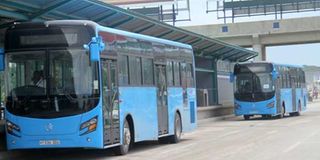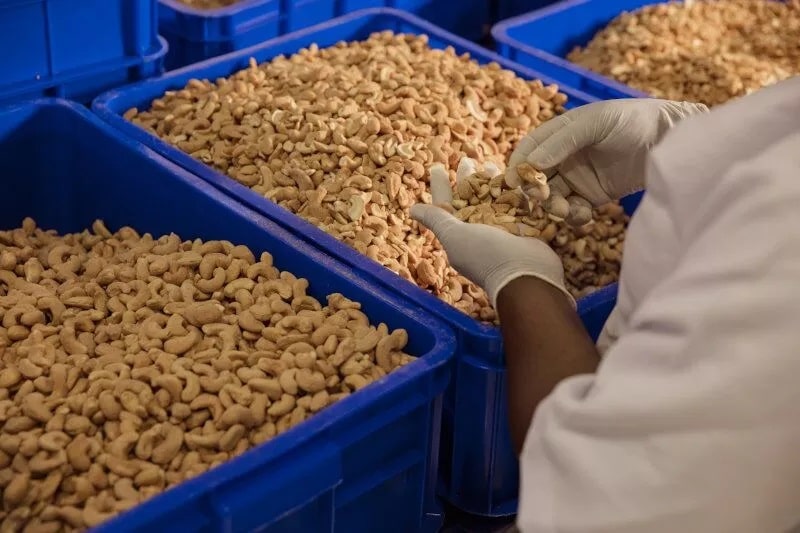The task ahead for new Dart chief

Rapid transit buses. Photo | File
What you need to know:
- Some of the challenges Dr Kihamia faces include the acquisition of buses for stages 2 and 3, the relocation of the Jangwani depot and the reintroduction of smart cards
Dar es Salaam. The new Dar es Salaam Rapid Transit Agency (Dart) Chief Executive Officer is greeted with a laundry list of unfinished projects that must be addressed in order to meet public expectations.
President Samia Suluhu Hassan yesterday appointed Dr Athumani Kihamia as the new Dart chief, replacing Dr Edwin Mhede, whose appointment was revoked after almost two years of service.
The agency, which supervises rapid commuter transportation in the city, is currently operating the first phase of the rapid transport projects as the second and third phases are being implemented.
Some of the key issues that await Dr Kihamia include the acquisition of new buses for phases, the relocation of the Jangwani depot, the reintroduction of smart cards, and ensuring the construction of other projects is completed within a specified time.
A resident of Mbezi Msakuzi, Mr Yusufu Abedi, told The Citizen yesterday that the new Dart’s chief executive has to sort out some challenges that are currently encountered by commuters.
“The most important thing for him is to sort out some challenges faced by commuters in Bus Rapid Transit (BRT) phase one before purchasing buses and finalising the construction of the second phase to build trust in the project among the public,” he said.
Mr Abedi noted that there is no way BRT phase two can start operating, while BRT phase one has a number of challenges.
According to him, his performance will be measured by ensuring new buses for phase one are available, unlike they are at the moment. “The BRT phase two infrastructure is almost finalised, but there are no buses operating. We do not know what is going on,” he said.
A source who did not want to disclose the name said that the new Dart’s chief executive must know that the BRT has not met people’s expectations since it started its operations in 2016, citing congestion at BRT stations as one of the challenges.
Explaining, the source said that the project is good and proved successful in some countries, and it is also good in Tanzania since people still consider it the quickest means of transport in the busy and jammed city.
According to the source, complaints from the public mean there is demand for the services.
“If the new boss wants to keep his seat, Dart must come up with a timetable system on what time the buses will arrive and leave respective stations so that commuters can know when to be at the station, unlike the current state where people waste time at the station and scramble to get into the BRT bus when it arrives,” said the source.
Last month, The Citizen reported that the construction of BRT phase two, which runs between the city centre and Mbagala, was complete, but commuters remain in limbo because they do not know when commuting operations will start on lanes.
Available data shows that the $159.32 million (Sh285.1 billion) project, which is being implemented by China’s Sinohydro Construction Limited (SCL), has been completed by 98 percent and it was expected to be handed over to the government in October 2023.
Tanzania Road Agency (Tanroads) project manager for BRT, Mr Barakael Mmari, told The Citizen in December that BRT phase II was almost finalised; the only pending issue was the installation of traffic lights. “The contractor delayed ordering traffic lights, but once the lights arrive and get installed, we will start to monitor their efficiency in controlling the movement of vehicles,” he said.
Tanzania Bus Owners Association (Taboa) spokesperson Mustapha Mwalongo said that the new Dart chief executive should be a person who regularly visits the BRT stations so that he sees himself, listens to commuters and does not wait for information from his subordinates. “I see most of the people appointed to oversee BRT projects are more involved in office work (white collar jobs) than field visits... This job does not require a lot of paper work,” he said.
“Visiting BRT stations frequently will help the chief executive understand the various challenges that passengers go through, and it will be easy to inform the board on what should be done,” he added.
The chairman of the Association of Medium and Small Truck Owners of Tanzania (Tamstoa), Mr Chuki Shaban, said that it is not a problem to change the leaders; it is how the appointed leader helps to manage the project.
He noted that it should reach the point where the people appointed for the BRT project must have experience in the transport industry.
“People should understand that the BRT project is a business, and business does not require a degree. That is why there is no educated billionaire,” he said.
Dart’s acting transport planning manager, Mohamed Kuganda, said recently that the process for acquiring the buses is currently at the ministerial level.





